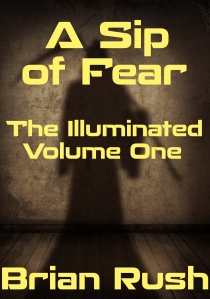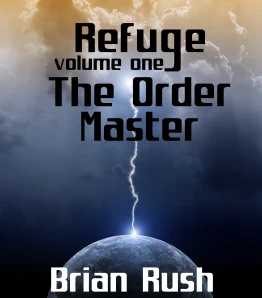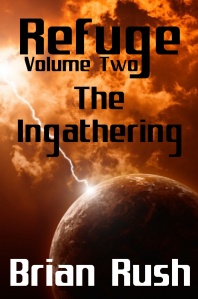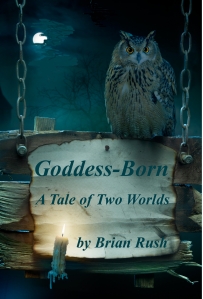 For some time now — although I believe (and hope) that the trend is reversing — science fiction and fantasy storytelling have trended towards darkness. Dystopia, post-apocalyptic visions, and fantasy featuring anti-heroes and non-heroes have predominated. These stories run the gamut in terms of subject matter and science fictional or fantasy elements, but all of them have something in common, and that’s the fact that no characters are to be wholly admired. That’s especially true if the character is an authority figure or someone who, in conventional thinking, is supposed to be admirable. Another common element is that pessimism is universal and optimism decried. A vision of the future must be bleak, with matters getting steadily worse, and any progress made either illusory or a temporary reprieve of the overall slide into awfulness. This is regarded as “realism” (never mind that, in view of actual history, it is completely counter-factual).
For some time now — although I believe (and hope) that the trend is reversing — science fiction and fantasy storytelling have trended towards darkness. Dystopia, post-apocalyptic visions, and fantasy featuring anti-heroes and non-heroes have predominated. These stories run the gamut in terms of subject matter and science fictional or fantasy elements, but all of them have something in common, and that’s the fact that no characters are to be wholly admired. That’s especially true if the character is an authority figure or someone who, in conventional thinking, is supposed to be admirable. Another common element is that pessimism is universal and optimism decried. A vision of the future must be bleak, with matters getting steadily worse, and any progress made either illusory or a temporary reprieve of the overall slide into awfulness. This is regarded as “realism” (never mind that, in view of actual history, it is completely counter-factual).
Dark fiction features no sharp moral lines. There are no good guys and either there are no bad guys or everyone is a bad guy. The best such stories have protagonists who at least have some redeeming features, but we are offered no one who could serve as a role model, no one whom we can admire without reservation, or only with the reservation that everyone has at least some flaws. There can be (and usually are) double-died villains, but the “heroes” must be no better, or only marginally better, so that the reader is inclined to say, “They’re awful, but the alternative is even worse.” This is fiction for cynics, for those who have believed in someone or something in the past, been disillusioned, and reached a determination never to get fooled again.
And in so doing, they fool themselves. But never mind that; fiction isn’t necessarily supposed to reflect the real world. But it does give us what we imagine that we want.
If I were to define “dark fiction,” I would say that it is fiction characterized by three essential characteristics:
1. Pessimism. The world inhabited by the characters in a dark story (whether fantasy or non-fantasy) is one that is bad and likely to get worse. Whatever social problems characterize it — income gaps and class differences, corrupt government, racism, environmental callousness, declining liberty, whatever — they cannot be solved and they’re going to get worse in the future, or at least never get better. The characters’ own personal problems may be solvable (although at least in part they’ll be just as intractable), but the world is plain screwed.
2. A dearth of heroes. The characters in a dark story aren’t just flawed (all good characters in any fiction have flaws), but they’re so flawed that we can’t admire them much, even when we identify with them. If the Star Wars story were rewritten as dark fantasy, Yoda and Obi-Wan would be revealed as opportunistic posers, self-seeking con artists, or self-righteous and judgmental pricks, as bad as the Emperor and Darth Vader (or at least nearly so). Dark fiction can have completely villainous and evil characters (although it need not do so and the best examples arguably don’t), but it can never have characters that the reader wants to admire, emulate, and feel confident about. Nobody wears a white hat. The protagonists are, at best, clad in gray.
3. Moral ambiguity. This may need some explanation, because moral ambiguity can take a number of forms and not all of these are properly considered “dark.” Confusion about the right action to take, or moral convictions on the part of characters that reflect poor vision and understanding or dogmatic thinking, are not in themselves “dark” qualities. The type of moral ambiguity that characterizes dark fiction is not just moral uncertainty on the part of the characters, but a situation in which there really is no clear moral difference between choices, so that characters can act on selfish and self-centered impulses without remorse, and never end up feeling good about themselves, no matter what they do.
I tend not to write dark fantasy at all, and although I have put out one dark science fiction novella (Robin), it’s not my preference. Dystopia serves a purpose in that it highlights a danger that may be arising and so gives us an opportunity to prevent it from happening, but there’s a difference between a story that says, “Watch out, we’re in danger of something bad happening if we don’t reverse course,” and one that says, “We’re just plain fucked and all we can do is survive.” There’s a difference between stories with realistic characters suffering from the usual array of human flaws, and one in which nobody is admirable at all. There’s a difference between stories in which the protagonists are faced with difficult moral choices calling for sacrifice on their part, and stories in which they are never called upon to do the right thing, because there is no right thing. I can enjoy a story like that once in a blue moon, but it will never make my favorites list. In this, I differ from some other readers, particularly those somewhat — but not too much — younger than myself.
What’s occurred to me recently is that the trend toward and away from dark fantasy may be driven by generations. Specifically, the rise in dark fantasy’s popularity is driven by Generation X, and the decline in dark fiction recently (as one can see from a perusal of the Amazon Kindle Store’s fantasy and science fiction best sellers, most of which are at this point not dark) to the maturation into their main reading years of the Millennial generation. Earlier periods in which dark fiction rose to prominence and then declined (because the current phenomenon is certainly not the first time it’s happened) were, I believe, possibly driven by the emergence of previous Reactive generations followed by Civic generations (according to the generational cycle theory presented by the late William Strauss and Neil Howe in their books Generations, The Fourth Turning, 13th Gen, and Millennials Rising).
My personal experience as an author reflects this. I’ve received my worst reviews from Xers and my best ones from Millennials. (As noted, most of my writing is distinctly non-dark.) Mostly, when I’m taken to task in a really serious way, and always when it’s in a way that annoys me, it’s because my writing is distinctly non-dark. There’s plenty of conflict, but it’s optimistic. The protagonists in my stories, at least some of them, are genuine heroes, people the reader is expected to admire and look up to. And moral choices are often clear. One person recently expressed a “sinking feeling” that the Andol (the “good guy” aliens in my Refuge series) won’t be revealed as secretly nasty and evil in future books. Now, I’m not going to give spoilers, so I won’t say whether he’s factually right about that, but I will say that if this causes a “sinking feeling,” then perhaps he’s not really in my target audience.
This sort of critique, in which I’m taken to task for writing stories that are exactly what I intended to write, infuriates me. I don’t mind legitimate criticism, and Gods know my work is not without flaws. I have written stories with too many characters that confused the reader. My dialogue, although I think it’s generally good, sometimes drifts away from believable speech into dissertations. I have trouble depicting romantic relationships that are deep and credible. I know all of this and deeply appreciate any critical help in improving all of these and other genuine problems in my writing, because that will help me to make it better — and I want to be the best I can.
But that my fiction isn’t dark fiction is not a flaw. When someone tells me that I need to write dark fiction as if that were the only kind of fiction that is any good, my answer is to simply say, “No. I won’t. I don’t want to, and I don’t have to, and that’s that.” If that means I’m writing for Millennials more than for Xers — so be it.
Now, I’m not saying that anyone who likes dark fantasy or any other dark fiction should’t read that stuff, or that people who want to write it shouldn’t be writing it. I’m against arbitrary limits on the arts — that’s the main point of this post, after all.
I’m just saying that we shouldn’t see darkness as synonymous with quality. And that consequently, the decline in the dark fantasy fad is a good thing.








